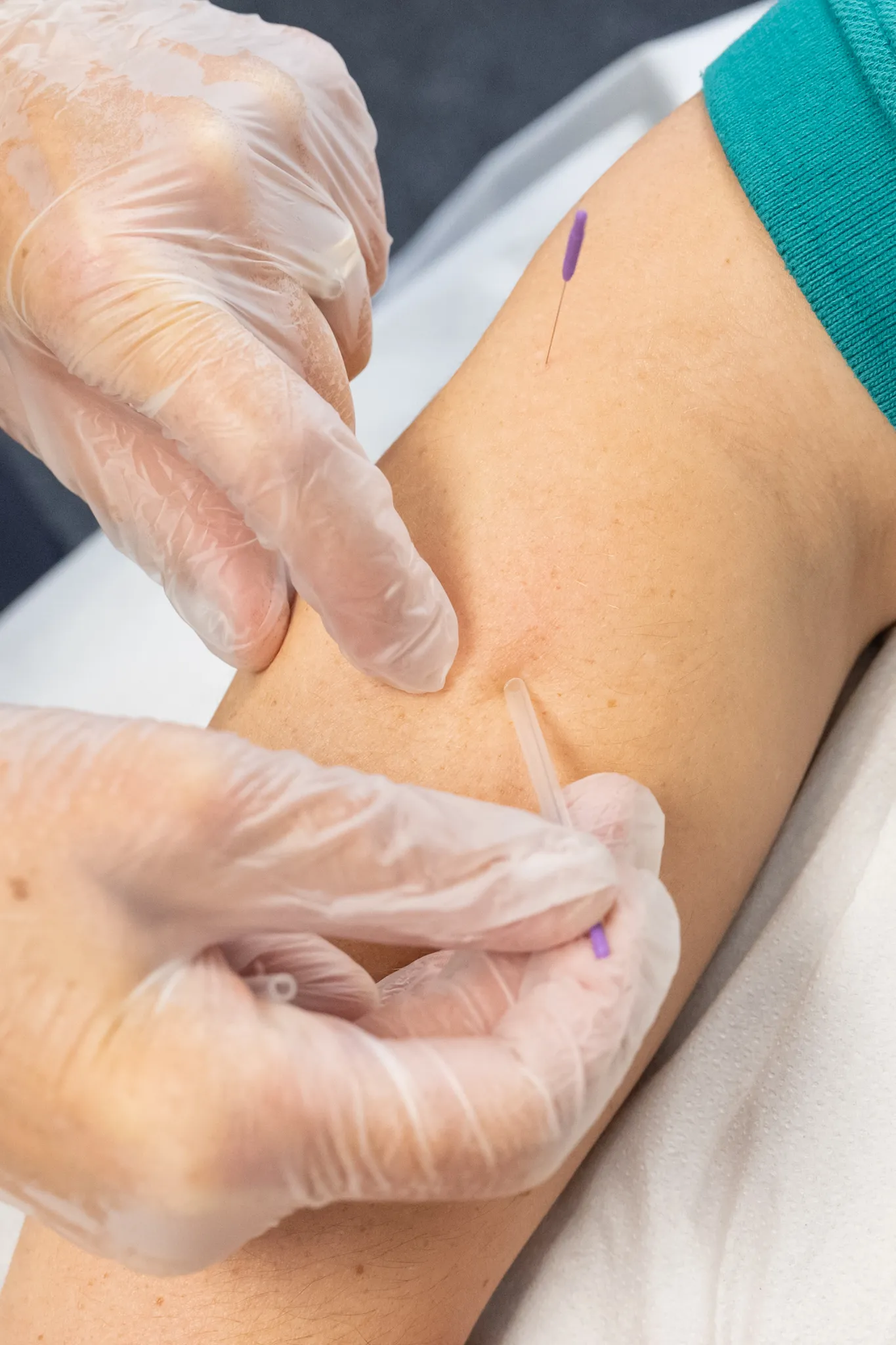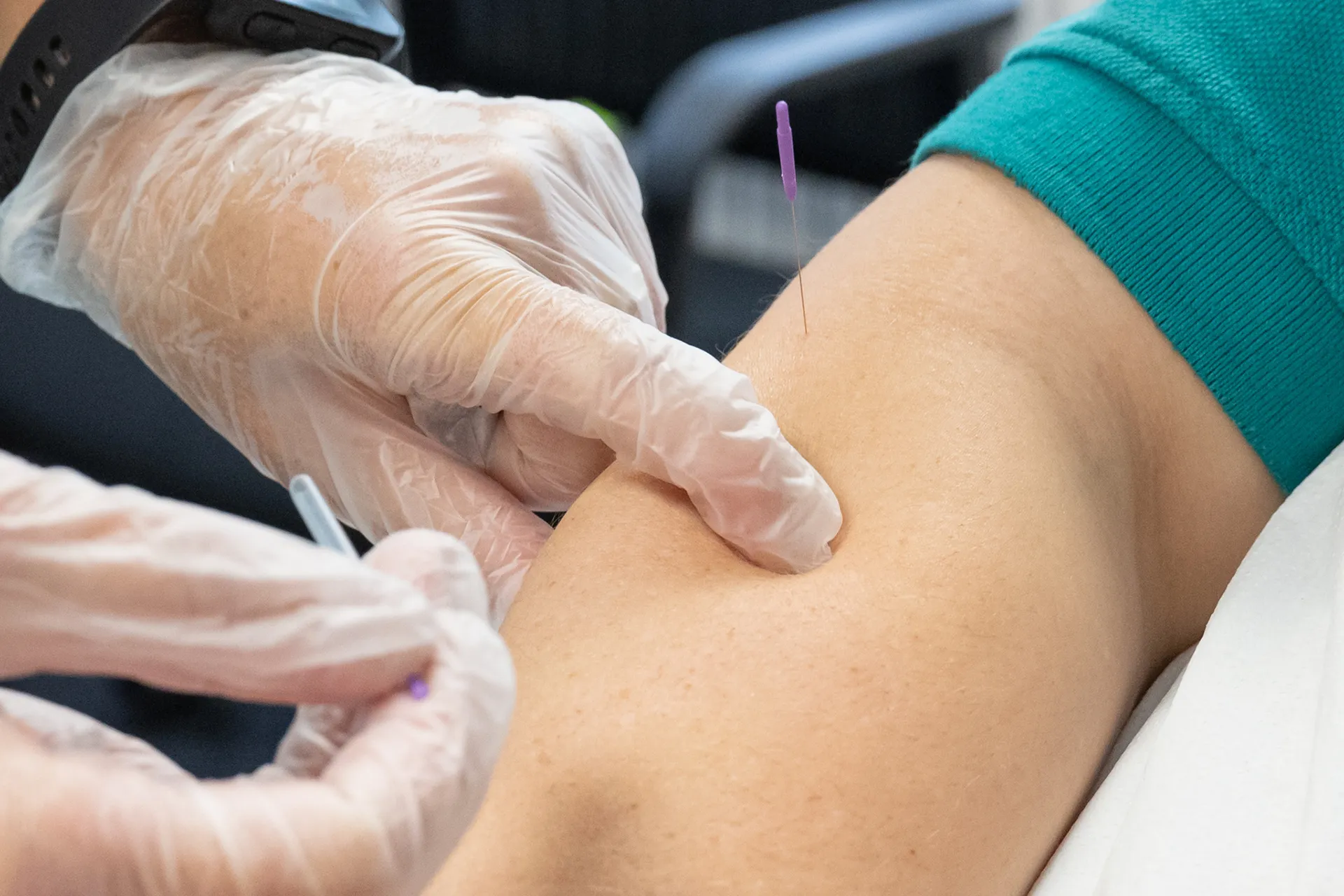Acupuncture
Acupuncture is a form of therapy in which fine needles are inserted into specific points on the body, this is believed to stimulate the central nervous system and the body’s natural healing abilities
Acupuncture
Acupuncture is a traditional oriental form of medicine/ therapy, in which fine needles are inserted into specific points on the body. This is believed to stimulate the central nervous system and the body’s natural healing abilities.
In the traditional form it is believed that energy flows through the body in meridians/ channels similar to our nerve pathways. If there is a blockage or reduction to the flow of energy, pain or illness results. Acupuncture restores the flow of this energy and hence helps the healing process. It is also known that acupuncture increases the production of endorphins our own natural painkillers (a morphine derivative, hence a natural painkiller).
Western acupuncture or dry needling may be used after a full assessment of your condition, in conjunction with other manual techniques. It is used mainly to relieve pain but can be used for chronic headaches, migraines, joint and muscle conditions.


What to expect
If acupuncture is agreed to be an appropriate treatment for you this can be done in our physiotherapy sessions. During the session you will be asked to sit or lie down. You may be asked to remove some items of clothing to gain access to the area which requires treating. Treatment is performed under sterile conditions, using single use, sterile, disposable needles. The needles will be inserted just under the skin, or deeper if they need to reach the muscle. You may experience a tingling or dull ache when the needles are inserted, but you should not experience any significant pain. Once the needles are in place you will be left in position for the duration of the treatment, this can last from a few minutes to up to half an hour.
FAQ
Frequently Asked Questions
Is Acupuncture safe?
Yes, the use of acupuncture is generally very safe, with serious side effects being very rare – less than 1 per 100000 treatments. There are however, some areas of the body that we are unable to use acupuncture on, this will be discussed with you during your appointment
Does acupuncture have side effects?
You need to be aware of the following points:
- Drowsiness occurs after treatment in a small numbers of patients, if affected you are advised not to drive or use any machinery
- Minor bleeding or bruising occurs after acupuncture in about 3% of treatments
- Pain during treatment occurs in about 1% of treatments
- Symptoms can get worse after treatment (less than 1% of patients), you should tell your physiotherapist about this, but it is usually a good sign
- Fainting can occur in certain patients, particularly at the first treatment
- In addition, if there are particular risks that apply in your case, your physiotherapist will discuss this with you
Is there anything your practitioner should know?
A full medical history and physical examination will be performed prior to receiving any acupuncture, however, you should inform your physiotherapist if you have any of the following:
- If you have a pacemaker or any other electrical implants
- If you have ever experienced a fit, faint or funny turn
- If you have a bleeding disorder
- If you take anticoagulants (blood thinning medication)
- If you have damaged heart valves or have any other particular risk of infection